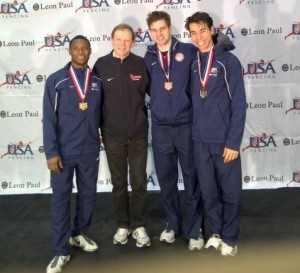
Daryl Homer and Tim Morehouse spent some time after the Kansas City North American Cup (NAC) answering some questions for Fencing.Net
You both just returned from Kansas City North American Cup with Daryl winning and Tim 3rd. How does this tournament impact team selection for the Olympics?
Daryl: This tournament is huge. This is my first Olympic quadrennial, but I have seen these tournaments “make” or “break” an athlete’s run for the Olympic Games. Clearly the majority of points should come from international competitions, but winning circuits gives you a small cushion.
Tim: We’ve already had four world cups that count towards London qualification, but this was the first North American Cup to count. Having a strong result is really important. Two out of three will count towards qualification to the Games and generally most of the spots come down to world cup performance, but you don’t want to hurt yourself with bad domestic results. Finishing 3rd for me is a solid finish.
Describe the competition and how you felt about your fencing and the level of competition at the tournament?
Daryl: Overall I wasn’t happy with my level of fencing during the competition. However, that is to be expected at this point of the season. Something would really be wrong if after training for a month I felt at my peak. I don’t remember feeling this nervous at a circuit event for a long time. I believe my teammates felt the same way. Overall I would say the level of competition was moderate. A circuit event will never be as strong as a World Cup event, but we also lacked a lot of the mid-level collegiate athletes due to college examinations.
Tim: This tournament is actually interesting in terms of where it falls on the calendar because we (national team members) really have only started training three weeks ago since worlds are held in October and we usually take a short break afterwards since and many college students are taking their exams so it tends to be weaker and smaller than the January NAC. Our focus is on peaking for the world cups so personally I feel like I’m just starting to round into shape. I think the quality of fencing was “ok” in terms of the field. There were many strong college fencers not there and I know many of our cadets were on their 3rd or 4th weekend competing in a row.
This quad, beginning in 2008 you’ve both won a combined 8 National tournaments Tim (5) and Daryl (3) out of 11 that have been held. How do you account for your success nationally?
Daryl: The success we’ve had Nationally comes mainly from the strong training group we have in New York. We have consistently trained with the Top 8 Athletes in the country on a consistent basis. I also think you can attribute our success to our Coach Yury Gelman. He has managed to turn out some of the best National and International fencers since he started coaching in NY. When you look at the long tradition of athletes coming from New York, your almost expected to win National Tournaments!
Tim: Similar to what Daryl said. We are fortunate to have such a strong training group in NYC, Yury Gelman does a fantastic job preparing us at Manhattan Fencing Center, and we have a strong tradition of winning in NYC plus we are working extremely hard of course. I think 7 of the top 8 at the NAC were from NYC.
In head to head match-ups you are 3-3. What is it like fencing each other?
Daryl: Tough. I remember fencing Tim when I was 12 years old, and he was already a member of the Senior Team. I think people forget about our age discrepancy, which also translates to a discrepancy in experience. Although Tim can no longer run up and down the strip with me, he is clearly able to use his experience. Tim is a crafty competitor, who won’t stop until the 15th touch. Most of our bouts come down to the last moment, and they are always nerve racking.
Tim: Fencing Daryl is always a great challenge and we’ve had a lot of great battles over the past three years. He is extremely fast, but I think his greatest asset is actually that he is an extremely smart fencer and well prepared. No one watches more video than Daryl and he is able to adjust very well during matches to what his opponents are doing. When fencing him, I know I will constantly be pushed to change my preparation tempos and tactics to keep him on his toes. If he locks in on your strategy and rhythm, he can wipe you out quickly. I think the last six matches bouts we fenced, four have been 15-14 and the other two 15-13 so it usually comes down to the final moments.
What does training look like during the Olympic season?
Daryl: Currently I am practicing 2 times a day, everyday. I am including an assortment of fencing activities, physical activities, and sport psychology. All of these together give me a pretty heavy load for the week. If I were in school there would be no way for me to train as much, or as efficiently as I do now. This part of the season is mainly about building up your endurance in every area of your fencing. Once the World Cup season starts we will taper down a bit.
Tim: Fencing is the number 1 priority over all else. We have practices 2x a day during the week in addition to 2-3 physical conditioning sessions a week, 2 physical therapy sessions where I try to work on any lingering injuries and sports massage for muscle tightness to prevent injuries, I also watch fencing videos throughout the week and work on my psychology. This is my 3rd quadrennial preparing for the Olympics, so I’m used to the general nerves and stress you feel everyday during the qualification period, but it is still a challenge to stay balanced mentally, not over-train and to not get too crazy about how important each competition is towards London 2012.
At the 2008 Olympic Games, the US Team won a Silver Medal in the Team’s competition. The experts would probably say you’re a long shot for a medal in London 2012. What do you think are your chances?
Daryl: I’d say the 2008 Olympic Team was a HUGE long shot for a medal. I watched our Men’s Sabre Team lose 45-28 to Hungary 1 month before the Olympic Games. At the Olympic Games the guys won the match 45-44. The Olympic Games are a special experience, and there are an unbelievable amount of intangibles that go into winning a medal. No team can go into the Olympics saying they have a guaranteed medal, and neither can we. What we can say is that we will prepare, compete, and fight like Olympic Medalists.
Tim: The Olympics are a very special competition and many things happen with different athletes and teams once that level of nerves and pressure hits. The 2008 team was considered a huge upset, but I know it was our goal all along to win a medal as it is now for us to try to medal and win in London 2012 . This is of course a different team with Keeth Smart and Jason Rogers having retired, but Daryl Homer has shown signs of brilliance at international competition and he’s only getting better, James Williams has been a rock for us in team competition, and Ben Igoe and Jeff Spear are very good fencers.
That being said, we have not made it to the podium since the 2008 Games and we know that we need to start improving our results to have a better chance to win a medal. We’ve had some great victories over Hungary, Ukraine and France who are all top teams, but we haven’t yet strung together strong wins which we need to do. We have improved by leaps and bounds over the past three years in our team performance and it seems that we are steadily improving so I look forward to a stronger season this year than last in both individual and team results.
On another note, I also think that the Canadian team really pushed and challenged us during the team qualification period (which is not done yet although we are in a strong position) so I think we are building the type of “battle tested” under-pressure experience that is important for performing at the Games.
What is it like training with Yury Gelman?
Daryl: Let’s me start by telling you that I haven’t trained under anyone else but Yury Gelman. Yury has coached me since I was 11 years old, so I understand the intricacies of his system. I can’t think of another person in America who could bring me from a scrawny 11 year old to where I am now. Yury continues to push us everyday at practice, regardless of our results. He has truly ingrained in our heads that, “one day you’re a champ, the next day you’re a chump.” Whenever we feel something is wrong with our training, Yury will sit down and have a discussion with us. We have a really close relationship, and I look forward to accomplishing new things with him.
Tim: I started working with Yury after my Sophomore year at Brandeis University in 1998 so I’ve worked with him for over a decade now. He is someone who is never satisfied and always demanding improvement and I think that’s a really important attitude to have. I’ve been fencing for twenty years and I can tell you that I’m still learning new things every year and Yury will tell you also that he is still learning and trying to figure out new things. The core of our fencing however is having excellent basics: Good footwork, technique, maintaining the right distance and then striking at the right time. A lot of the work we do is focused on perfecting the basics. At the end of the day, if you have strong legs and can keep yourself in the right distances from your opponent, good things will happen.
Tim Morehouse is currently ranked 1st in USA Fencing’s rolling point standings and Daryl Homer is ranked 2nd. In the FIE World Rankings, Homer is ranked 18th and Morehouse 27th.


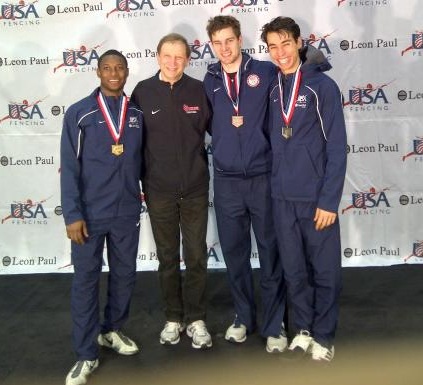
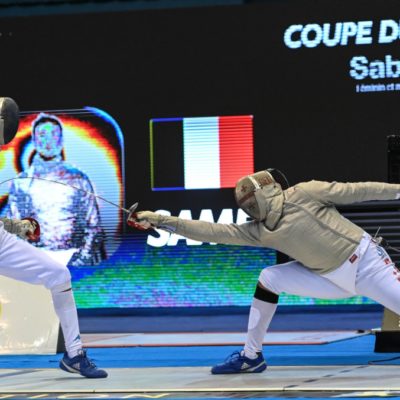
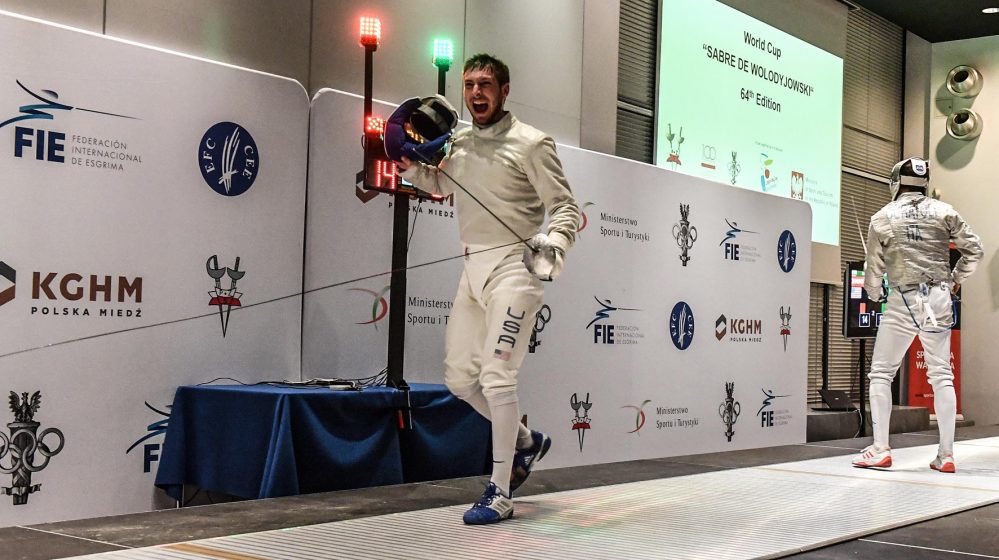
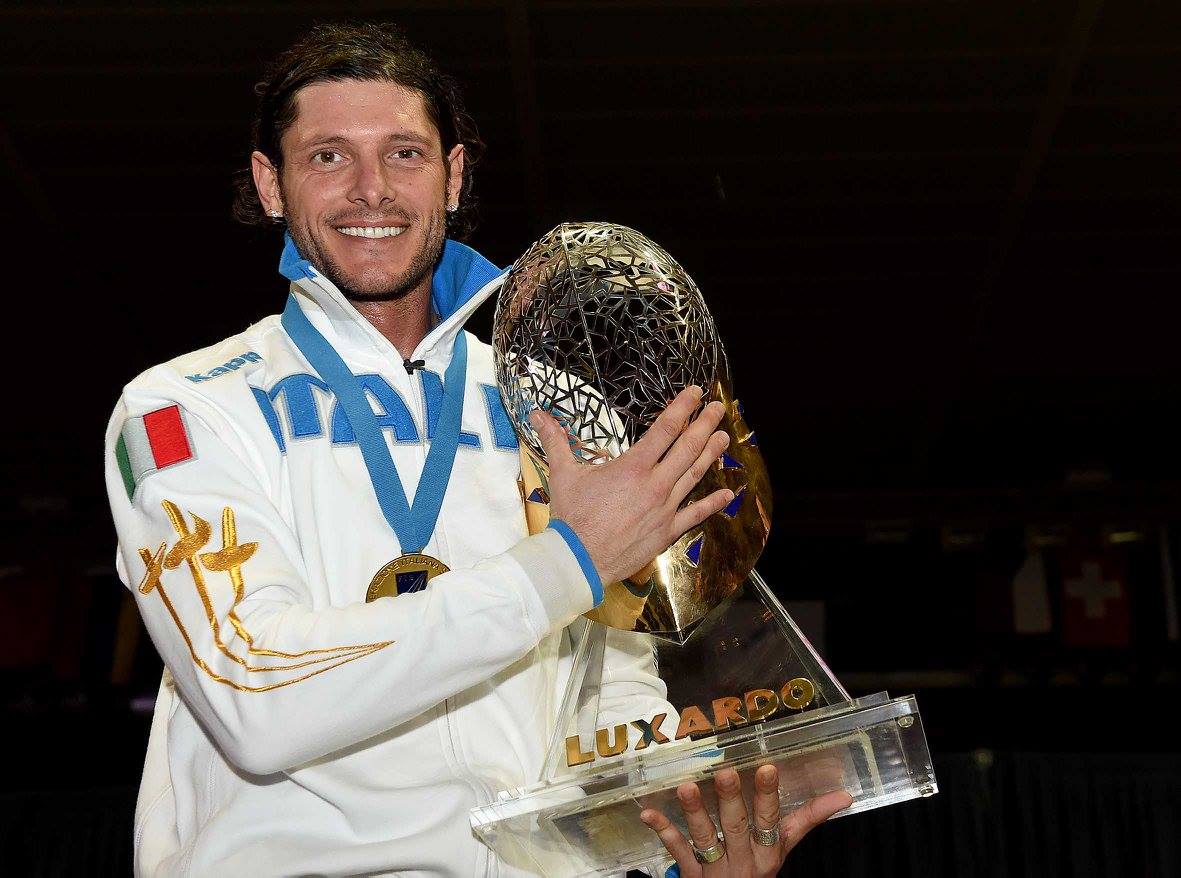
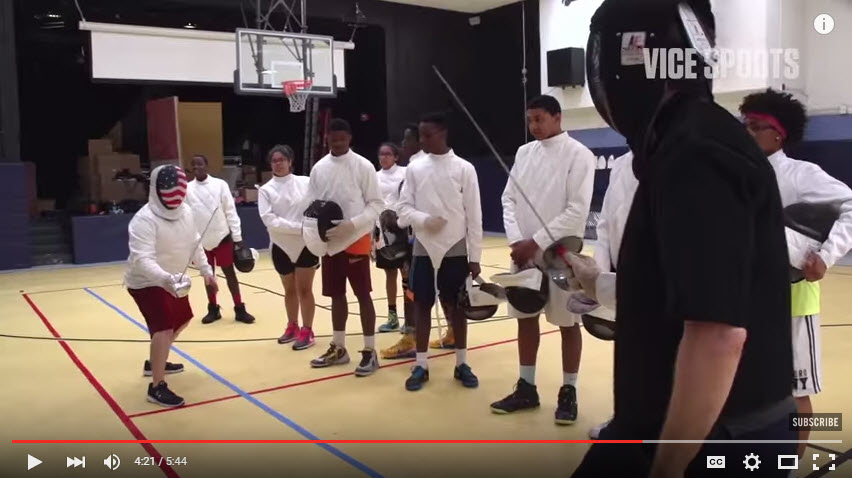
1 Comment
Comments are closed.